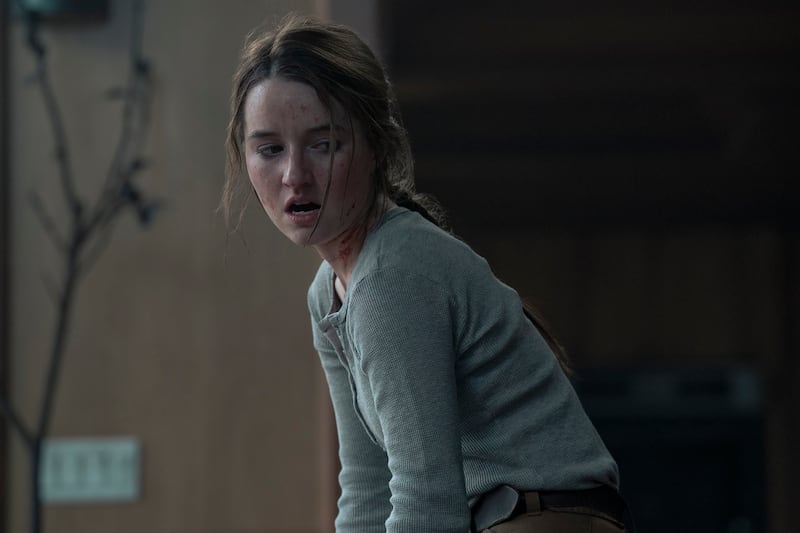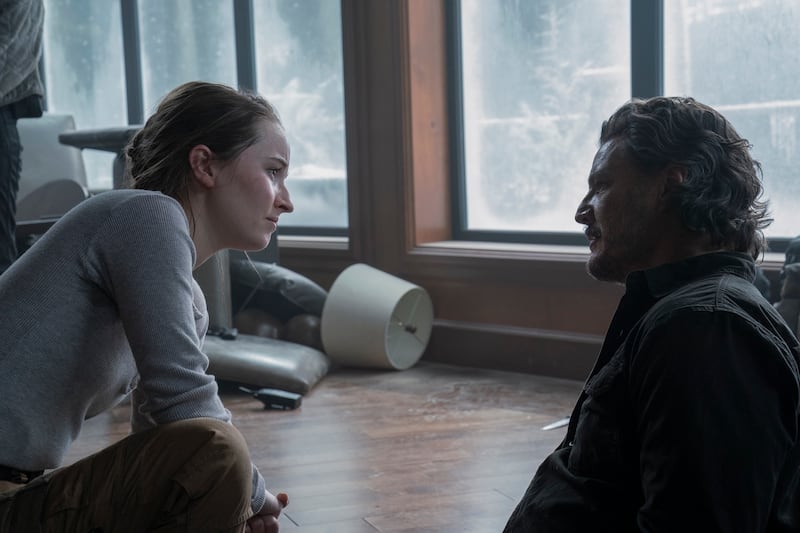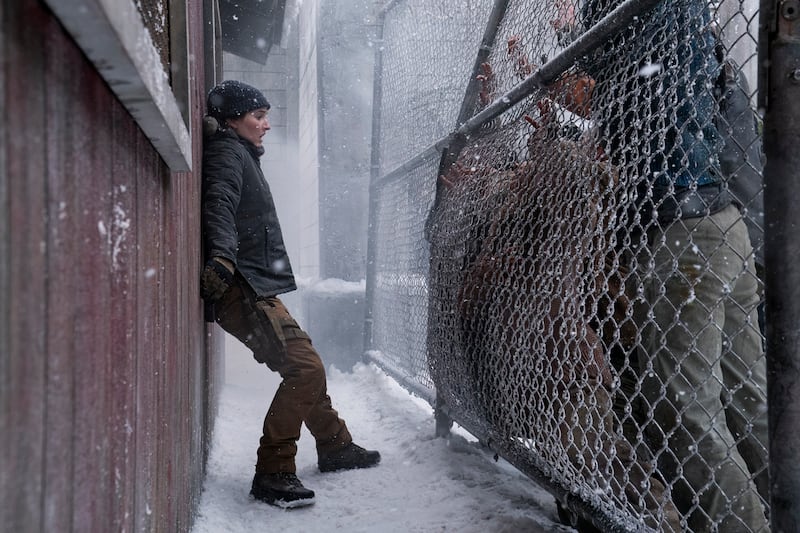(Warning: Spoilers ahead!)
I didn’t think the show had the guts to do it, but it’s official: Joel Miller (Pedro Pascal) is dead.
Devoted fans of the game knew it was coming, but with the announcement that HBO’s The Last of Us was renewed for a third season, it seemed like Joel’s fate might be delayed.
Like The Last of Us Part II, After finding out his identity, Abby (Kaitlyn Dever) is unmoved by the fact Joel has saved her from a hoard of the infected, luring him to a mansion she and her friends are staying in instead. She then shoots Joel in the leg, and reminds him of the people he killed back in the first season’s final episode.
Season 2 wastes no time allowing Abby to enact her revenge, as well as her grievances. While she was present in the season’s premiere episode, there was still an air of mystery surrounding her character and her motivations. In the show’s most anticipated scene, she interrogates Joel with a fervor that Dever portrays deftly. Then the show takes a step beyond the game and has Abby reveal to Joel—and subsequently the show’s audience—that her father was the doctor Joel fatally shot back in Salt Lake City.

When Joel asks his killer who she is before she enacts her revenge in the game, her response is simply, “Guess.” Joel is undeniably one of the most beloved game protagonists of the 2010s, but you’re kidding yourself if you think (especially by real life standards) that he’s a good guy. With everyone he’s killed before the story begins, to the people he murders to keep Ellie (Bella Ramsey) safe, it’s a miracle he wasn’t hunted and killed earlier. The consequences of his actions caught up with him, and the initial anonymity of his killer proves that their identity doesn’t matter in the wake of his death and Ellie’s resulting anguish.
In the game, Abby is a more significant threat than the infected, posturing through each scene with an unwavering sense of right-and-wrong that threatens Ellie’s already rocky grief-driven rampage. It’s nearly impossible to empathize with Abby even when her motivation is revealed. Through a specific kind of storytelling that can only exist in video games, you inhabit Abby and her life, playing as the very person who has caused the death of the man who you played as in the previous game. It’s only after playing as her for hours that many viewers were able to not only warm up to her, but see her as a broken and raw character who is just as problematically human as Joel was.
The moral dilemma that players were forced into by playing as both Abby and Ellie is something that this adaptation steers away from. It’s a shame, especially since we live in a post-Cersei Lannister world where fleshed out female antagonists don’t exist anymore. The empathy that gamers felt for Abby was juxtaposed with the surmounting grief and rage harbored by Ellie, which is a defining factor of the game’s success as a meditation on grief and forgiveness.

Maybe the series was always at a disadvantage regarding how this second chapter unfolds. Television is an entirely different medium, one which cannot focus an entire season on Dever’s Abby after two seasons which are led by Pascal and Ramsey. But that thwarts a key component of the game, which forces you to play as Abby after she murders Joel. By placing its players in the shoes of its antagonist, the game forced us to become one with the character, evoking an unwavering empathy that television may not be capable of.
The mysterious veil that is placed over Abby’s identity undeniably makes the game the success that it is. If she can kill Joel, does that mean there are more people like her out there? Those who let their grief and rage stew inside them for years until they snap in a brutal act of revenge? The Last of Us universe is a world where one mistake can kill you in an instance or even years down the line. Abby’s anonymity is a defining representation of the brutality of this world and its consequences.
Exposing Abby’s motivations in Sunday’s shocking episode may seem like a small change to some, but this admission takes a pivotal part of Abby’s character away from her. As an antagonist in The Last of Us Part II, she’s feared because of the secrecy of her identity and only becomes beloved as we are forced to sit in her agony with her. Yet in the adaptation, she’s already been laid bare at the audience’s feet, taking away the mystery and intrigue audiences should be able to experience like players did back in 2020.

In the show, when Joel tells Abby to get the job done and kill him quickly, she turns to him and slyly utters, “You don’t get to rush this.” It’s a shame that nobody thought to tell this to the writers of HBO’s adaptation as well. Instead, they’ve dug themselves an Abby sized hole that even once the next season comes to an end, I’m not sure they can come back from.
The post The ‘Last of Us’ Big Moment Was Ruined by HBO’s Huge Change appeared first on The Daily Beast.




